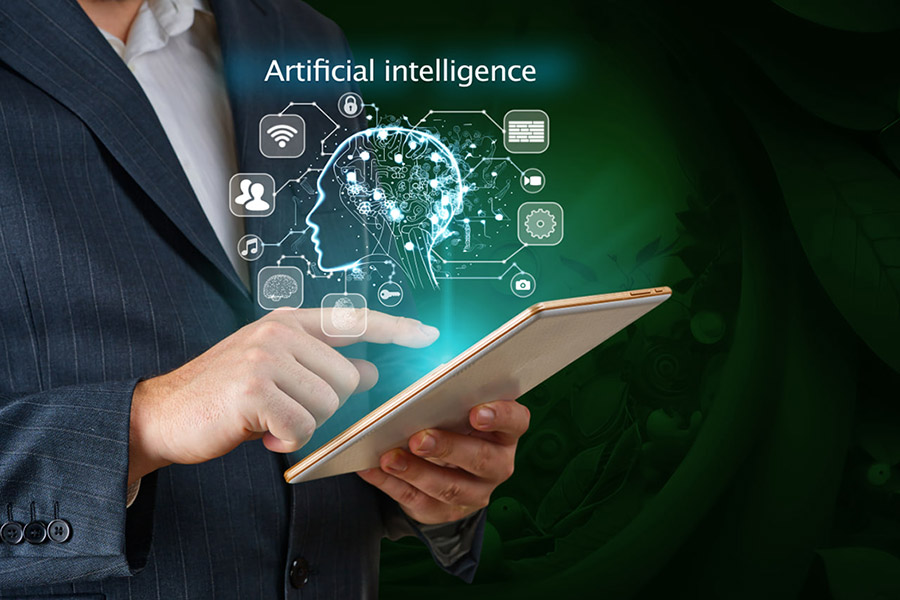Unveiling the Future: What is AI's Impact on Human Development?
1. Introduction
Brief overview of AI
The ubiquity of AI in modern life
2. Historical Perspective
Early developments in AI
Milestones leading to its current state.
3. Understanding AI
Definition and core principles
Types of AI: Narrow vs. General
4. Applications in Daily Life
AI in smartphones and smart devices
Virtual assistants and voice recognition
5. AI in Healthcare
Diagnostic tools
Treatment innovations
6. AI and Education
Personalized learning experiences
AI-driven educational tools
7. AI in Business
Automation and efficiency
Decision-making support
8. Ethical Considerations
Bias in AI
Privacy concerns
9. The Future of AI
Advancements and potential breakthroughs
Societal implications
10. AI and Employment
Impact on various industries
Potential job displacement
11. AI and Creativity
AI in art and music
Collaborations between humans and AI
12. Challenges and Limitations
Technical challenges
Public perception and acceptance
13. AI in Research and Science
Data analysis and pattern recognition
Accelerating scientific discoveries
14. AI and Global Impact
Addressing global challenges
International collaborations
15. Conclusion
Summarizing the key points
Emphasizing the transformative role of AI
What is AI and What Role Does it Play in the Development of Human Life?
In the 21st century, we find ourselves surrounded by technological marvels that were once the stuff of science fiction. At the forefront of this digital revolution is Artificial Intelligence (AI), a field of computer science that aims to create machines capable of intelligent behavior. As we navigate the complexities of modern existence, it's crucial to understand the profound impact AI has on the development of human life.
Historical Perspective
The roots of AI trace back to the mid-20th century, with early pioneers envisioning machines that could mimic human intelligence. Over decades, AI has evolved from simple rule-based systems to sophisticated algorithms that power today's smart devices and systems.
Understanding AI
At its core, AI seeks to replicate human cognitive functions. It operates based on algorithms and data, allowing machines to learn from experience. AI comes in two primary forms: Narrow AI, designed for specific tasks, and General AI, possessing human-like intelligence across various domains.
Applications in Daily Life
In our daily routines, AI is seamlessly integrated. Smartphones use AI for facial recognition and predictive text, enhancing user experiences. Virtual assistants like Siri and Alexa respond to voice commands, making tasks more convenient and efficient.
AI in Healthcare
The healthcare sector benefits significantly from AI, with diagnostic tools improving accuracy and speed. Treatment plans are becoming more personalized, thanks to AI algorithms analyzing vast datasets.
AI and Education
Education embraces AI with personalized learning experiences tailored to individual needs. AI-driven educational tools facilitate interactive and engaging learning environments.
AI in Business
Businesses leverage AI for automation, streamlining processes, and aiding decision-making. The technology enhances efficiency, allowing organizations to adapt to rapidly changing markets.
Ethical Considerations
Despite its transformative potential, AI raises ethical concerns. Bias in algorithms and privacy issues demand careful consideration as we integrate AI into various aspects of our lives.
The Future of AI
The future holds exciting possibilities for AI, with ongoing advancements in machine learning, natural language processing, and robotics. The societal impact of these innovations will shape the way we live, work, and interact.
AI and Employment
While AI brings efficiency, concerns about job displacement arise. Industries worldwide grapple with the challenge of balancing automation and preserving employment opportunities.
AI and Creativity
Beyond its functional roles, AI enters the realm of creativity. Machines generate art and compose music, sparking a dialogue about the collaborative potential between humans and AI.
Challenges and Limitations
Technical challenges, including ethical dilemmas and public perception, pose hurdles to the widespread adoption of AI. Striking a balance between innovation and responsible deployment is imperative.
AI in Research and Science
AI accelerates scientific progress by analyzing vast datasets, identifying patterns, and contributing to groundbreaking discoveries. Its role in research spans various disciplines, from medicine to astrophysics.
AI and Global Impact
Addressing global challenges, AI becomes a tool for positive change. International collaborations harness the power of AI to find solutions to complex problems, transcending geographical boundaries.
Conclusion
In conclusion, AI stands as a beacon of technological advancement, reshaping the landscape of human existence. As we embrace AI, it's crucial to navigate the ethical considerations and societal impacts, ensuring that these innovations contribute positively to our collective future.
Frequently Asked Questions (FAQ)
Is AI only limited to technology and business?
No, AI has applications in various domains, including healthcare, education, creativity, and scientific research.
What ethical concerns surround the use of AI?
Ethical concerns include bias in algorithms, invasion of privacy, and the potential misuse of AI technologies.
How does AI impact employment?
While AI enhances efficiency, there are concerns about job displacement, prompting a need for reevaluating workforce dynamics.
Can AI contribute to solving global challenges?
Yes, AI is a valuable tool for addressing global challenges by facilitating collaborative efforts and providing innovative solutions.
What does the future hold for AI?
The future of AI holds promises with ongoing advancements in machine learning, robotics, and its potential to reshape various aspects of human life.


